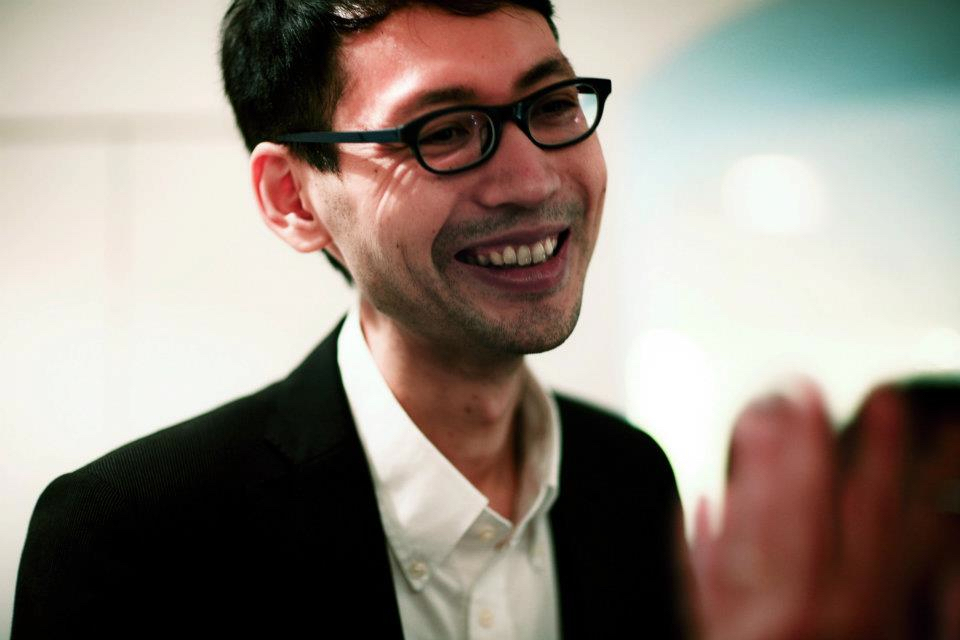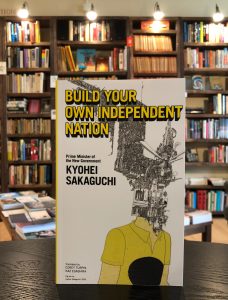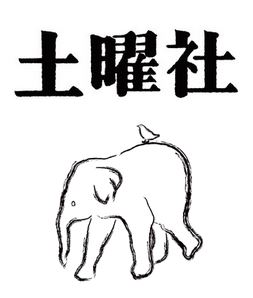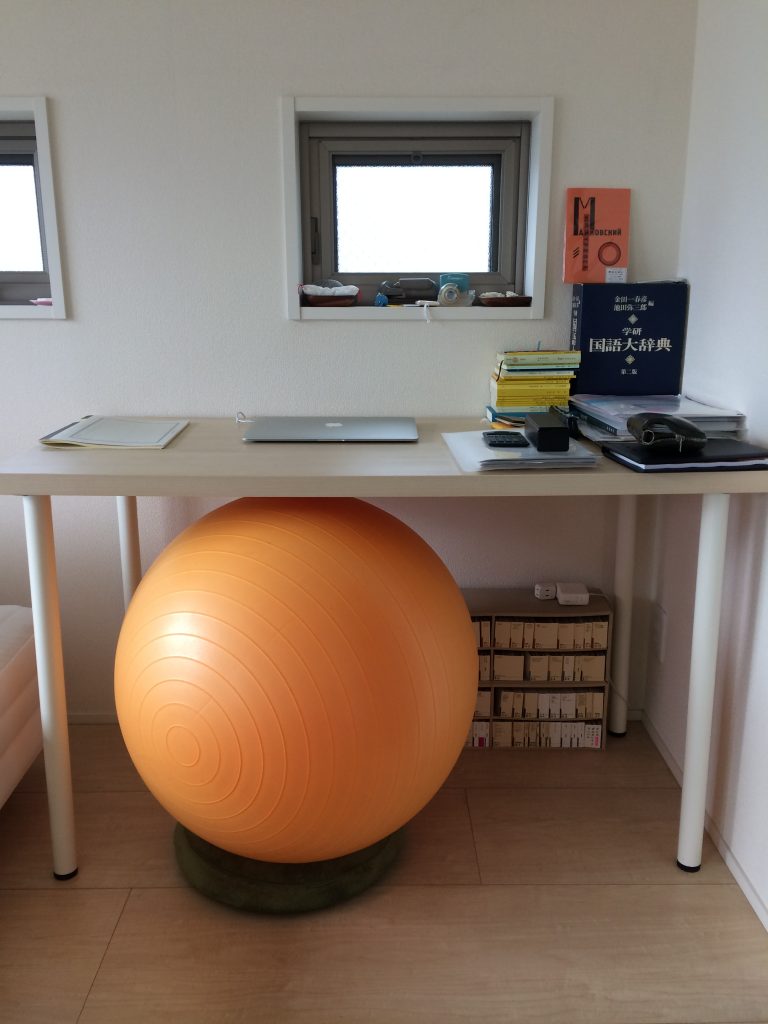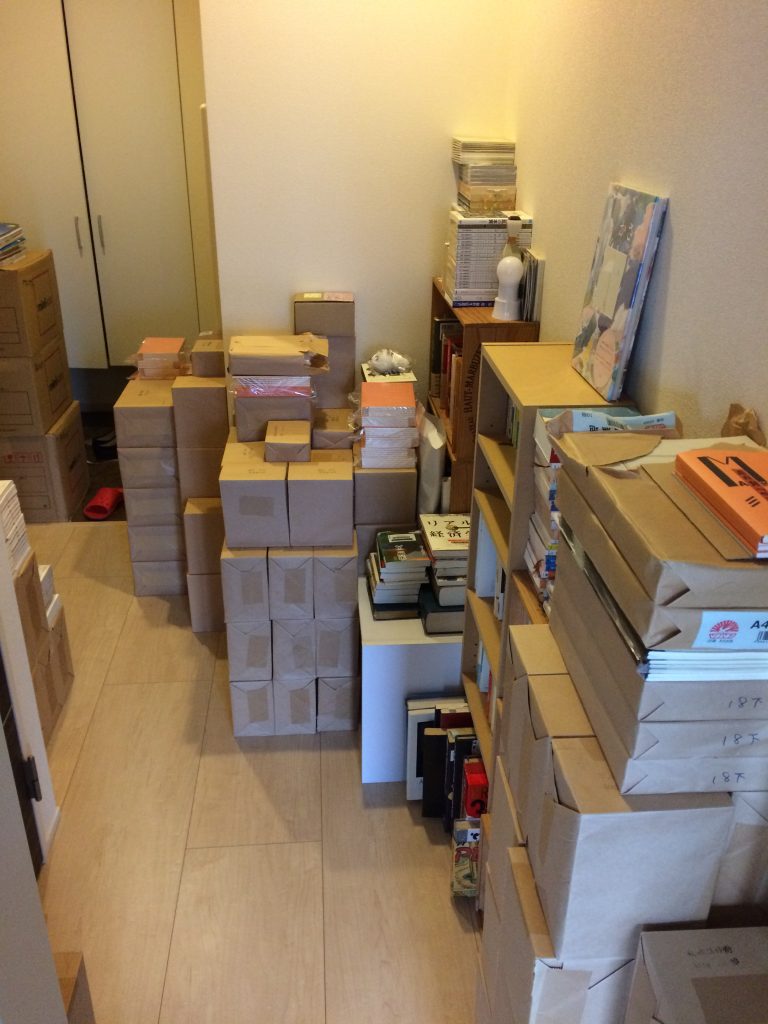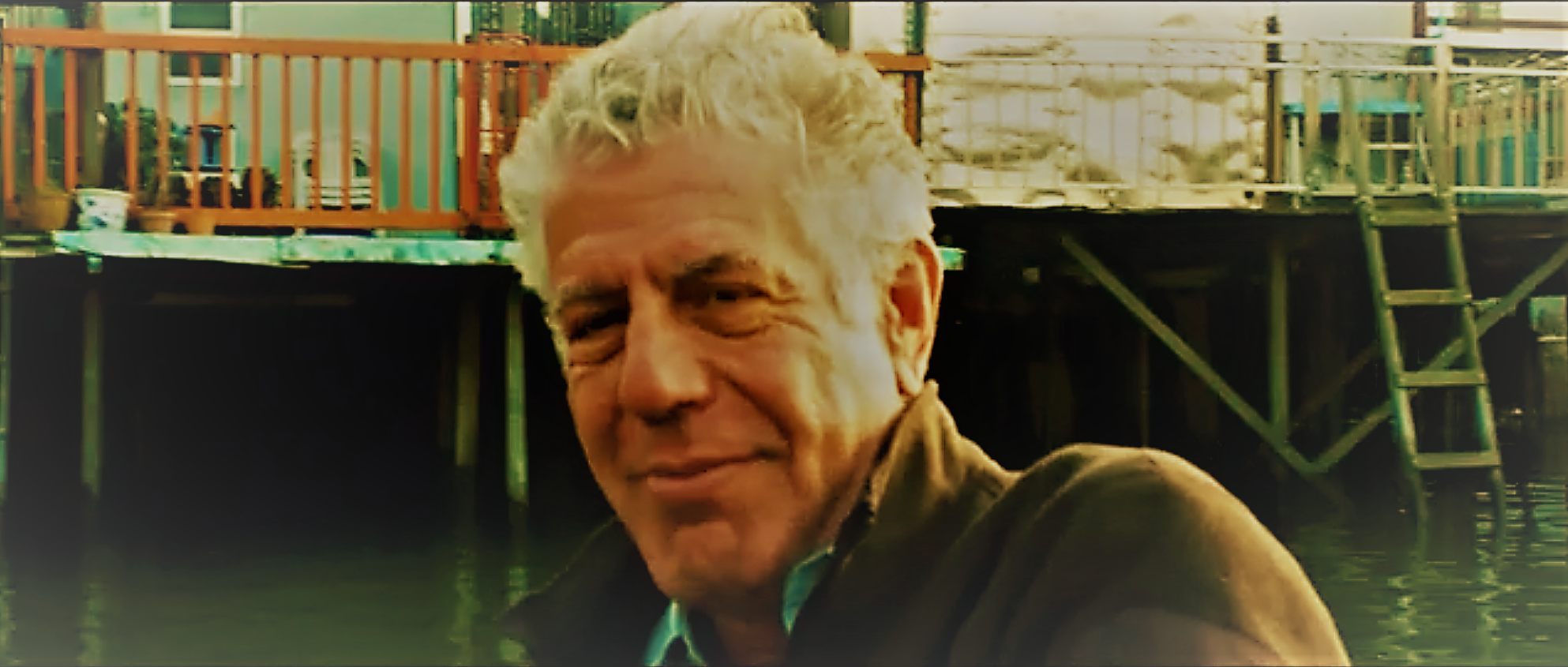 It is probably cliche by now — just a day after his tragic suicide death — to say that Anthony Bourdain was more than just a T.V. personality, and somewhat presumptious to even make that observation for folks who never knew Tony beyond the cool, witty, no bullshit persona he exuded on the screen.
It is probably cliche by now — just a day after his tragic suicide death — to say that Anthony Bourdain was more than just a T.V. personality, and somewhat presumptious to even make that observation for folks who never knew Tony beyond the cool, witty, no bullshit persona he exuded on the screen.
But judging by the shock factor elicited by Tony’s suicide, especially among his closet friends and family members, one might venture to say that no really knew Tony. What we have to go by it seems are the bits and pieces Tony left behind during a career that saw him go from lowly line cook to budding food writer to superstar media personality.
What follows is a tribute of sorts to Tony. It is a piece, which we transcribe here in its entirety, that Tony wrote for the now defunct food journal Lucky Peach. In it Tony tackles two of his favorite subjects in life: food and film. The piece is eerily titled Dead Heads, and if you read it even a bit closely you will see that it exudes the kind of despair and morbidity that perhaps ultimately led to Tony’s demise.
If you’ve read Tony’s stuff before or even listened to him speak you will recognize instantly that the piece that follows is classic Bourdain. Astute, funny, deep, even poetic at times. To borrow from Woody Allen’s classic film Manhattan — “pithy yet degenerate”, but in a good way.
If you’ve never come across any of Tony’s stuff, well, you’re in for a treat.
RIP Tony. You will be missed but not forgotten.
(The photos that accompany this blog post are taken from footage of Tony that was shot in Hong Kong which so happens is where he filmed his last full episode of Parts Unknown.)
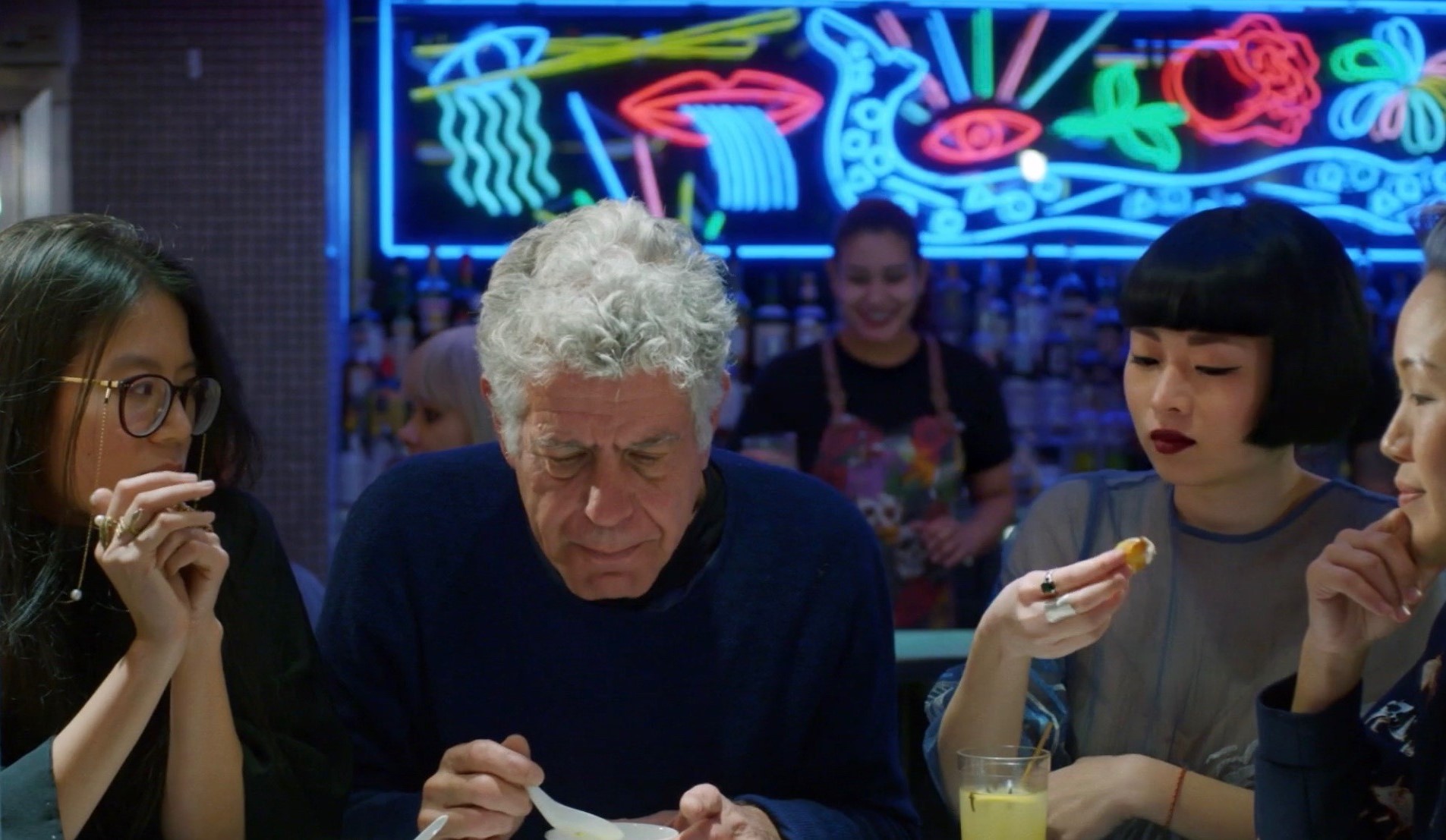
Dead Heads
by Anthony Bourdain
(Lucky Peach, Issue 5: Chinatown, Fall 2012)
At a kopi tiam in Geylang one night, while happily tearing the flesh, fat, and cartilage out of a shark head, a Singaporean friend told me a story. He felt his were the Chosen People, the Enlightened Ones, and that this story was particularly illustrative of exactly why. It was probably apocryphal, maybe not true at all, possibly utter bullshit. I don’t care. It’s a story I want to be true. It’s a story that SHOULD be true. As my friend told it:
Back in the day, when wealthy merchants used to travel across China in caravans, they were, from time to time, set upon by organized gangs of bandits and highwaymen. These enterprising free-market enthusiasts would ambush columns suddenly and without mercy, quickly slaughtering guards and escorts, then stripping the members of the party of any valuables before killing them. The head man, however, they always saved for last. Dragged kicking and screaming and begging for his life from his litter, forced to kneel on ground still soaked with the blood of his bearers and entourage, he would find himself at the feet of the chief bandit. The chief bandit, inevitably a fearsome-looking fellow, would offer the trembling merchant a whole cooked fish. Steamed, grilled — it didn’t matter. But it was always whole.
“Eat!” The chief bandit would command, pushing the fish in the direction of his prisoner. There would be a hush as the other bandits took a break from looting, disembowling, post-mortem violation, or any totemic preservation of remains they might be engaged in to move close to the action for what was clearly a Very Important Moment.
If the terrified merchant’s fingers or chopsticks moved straight to the fish’s head, tunneling into the cheek, perhaps, or tearing off a piece of jowl, there would be much appreciative murmuring among the Chief Bandit and his colleagues.
By choosing the multitextured, endlessly interesting mosaic of flesh buried in the fish’s head, their captive proved himself a man of wealth and taste. Clearly a man such as this possessed more wealth than what he and his caravan were currently carrying. This man would no doubt be missed by his family and his many wealthy friends, at least some of whom would likely pay a hefty ransom. The bandits would spare his life in the reasonable expectation of future gain.
If, however, the merchant chose instead to peel off a meaty hunk of boneless fillet, the bandits would jerk a cutlass across his neck immediately. This nouveau riche yuppie scum would be worth only as much as he carried in his pockets. Not worth keeping alive – much less feeding. Nobody would miss this asshole. The minute he chose fillet over head he proved himself worthless.
* * *
The tale is a fairly lurid example of a widely held principle throughout Asia and Europe — the older, smarter food world — that the head is the best part. Put a pile of shrimp or crayfish in front of a Spaniard, a Chinese, or any self-respecting Cajun for that matter, and they sure as shit will know what to do with it: suck the brains and juice and all that good stuff right outta those heads!
Chefs know, too. They know that no matter how hard they try, no matter what they do, they will NEVER create a sauce better than the hot goo that comes squirting out of a prawn’s head after a short time on a griddle. In Japan, whole restaurants are dedicated to the enjoyment of carefully grilled fish heads and collars. Fish-head curry is enjoyed and cherished by millions of Indians both within India and without. In many Portuguese restaurants, the limited number of merluzza heads are reserved in advance for VIP customers. The rest must suffer with steaks and fillets.
So what’s our problem with heads? Sure, cheeks are well-known to most urban American diners these days. Tongue has been enjoying something of a comeback. But for as long as I can remember, the appearance of a whole animal head on plate or in film has rarely been a welcome sight.
* * *
Upon our first encounter with John Huston as Noah Cross in Chinatown, we identify him as a bad guy teeming with incestuous, pederastic, murderous, evil. How do we know this? Two reasons. He keeps mispronouncing Jack’s name — referring to him not as “Mr. Gittes” but as “Mr. Gitz” — and worse, FAR worse, he’s devouring a whole, sinister-looking fish.
“I hope you don’t mind. I believe they should be served with the head,” Cross says.
“Fine,” says Jake (played by Jack Nicholson), “as long as you don’t serve chicken that way.”
The thing is just lying there the whole scene, dead eyes looking up at us. The underlying message is simple: only a monster would eat a fish with the head still on — and only an entity of previously unimagined cruelty would insist that his guest do so as well.
“You may think you know what you’re dealing with,” warns Cross, “but believe me, you don’t.” He’s talking about a massive conspiracy involving political corruption, theft of natural resources, real-estate fraud, and murder, but he could just as well be talking about that fish head. It’s scary. It’s big. It’s “ugly.” It’s the unknown.
“It’s what the DA used to tell me about Chinatown,” replies Jake, our hero and, as it turns out, the only guy in the film who doesn’t know what’s going on.
* * *
Captain Willard sits at a lavishly appointed dining table in an air-conditioned trailer somewhere in South Vietnam. He is about to receive his orders from what appears to be a superior in military intelligence and two officers of the CIA. A uniformed waiter serves lunch, and the camera lingers over a platter of head-on shrimp.
“I don’t know how you feel about this shrimp,” says the commanding officer in this early scene from Apocalypse Now, “but if you’ll eat it, you never have to prove your courage in any other way.” We know now that these men Willard is sitting with are some bad bastards, untrustworthy without a doubt, and whatever they’re asking him to do will be fundamentally dishonest and awful.
But the shrimp heads, like Chinatown‘s whole fish, also imply something more. Their black, beady, unseeing eyes, sitting at this incongruously luxurious table, are full of warning. They hint at the Great Unknown, warning that no matter what Captain Willard might have seen in the past, whatever he thinks he might know, he in fact knows nothing about what awaits him upriver, beyond the Do Lung Bridge.
* * *
Of course the portentousness of sea beasts is not limited to American films. Think of the end of La Dolce Vita. Our hero, Marcello (played by Marcello Mastroianni), has just emerged from an almost-orgy that turned into a bitter, drunken humiliation of a woman. He and his fellow partygoers stumble onto the beach in the early morning, where they happen upon a giant sea creature, dragged up by fishermen’s nets. Marcello notes the staring eyes. Moments later, a young waitress who earlier in the film served as a possible muse/angel figure calls out to him from across a narrow channel of water. Marcello can’t hear her. They attempt to communicate for a few seconds, but their words are lost in the noise of the wind and the surf. He gives up, shrugs, and returns to his shallow, pleasure-seeking entourage, none of whom really care about him. Here, the fish head is not a signifier of evil at all, but a cruel reminder of everything Marcello has turned his back on: love, self-knowledge, any kind of spiritual life.
(During the initial release of the movie, the fish was widely interpreted as a classic symbol of Christian [and pre-Christian] belief. It’s appearance, dead — along with many other “anti-religious” images in the film — was seen by some as the director’s way of suggesting that God was dead, too.)
Certainly the mysterious fish and its wide-open, lifeless eyes are a reminder and a rebuke, once again, of the Great Unknown. But in this case, they remind Marcello not only of what he doesn’t know but of what he has chosen not to know.
* * *
Perhaps the vilest calumny against head eating appeared in the wildly popular 1979 short film Fish Heads, directed by actor Bill Paxton. Debuting as a comedy interstitial featuring Barnes and Barnes on Saturday Night Live, it quickly became a stand-alone sensation, and its message of hate and barely concealed racism only reinforced then-prevalent attitudes of cultural imperialism and craniophobia.
Under an Alvin and the Chipmunks-inspired vocal track of “Fish heads, fish heads/Roly-poly fish heads/Fish heads, fish heads/Eat them up, yum,” the action exploits homeless and Asian stereotypes, finding much to laugh at in poverty and the indigenous foodways of ethnic minorities. Soon after the video hit heavy rotation on MTV, the streets were filled with would-be skinheads chanting its infectious chorus. Worse, the song was eventually covered by Duran Duran. Perhaps no single representation in the twentieth century did so much to set gastronomy back.
* * *
By the time a horse’s head famously appeared in the bed of film director Jack Woltz in The Godfather, horse meat had long since been rejected by mainstream diners in America. Granted, during the time period in which the action takes place, horse taretare was still quite popular in Europe, but it is unlikely that Don Corleone’s emissaries delivered the head as a gift for the kitchen, so much as a straightforward and gruesome warning.
In fact, in the annals of animal heads on film, I can find only one happy appearance of this most delicious and delightful body part. Only one time when the head of a creature — in this case a duck — brings enlightenment, laughter, pleasure, or joy, as it should:
In a Christmas Story, Bob Clark’s classic film of the short stories of Jean Shepherd, our adorable child protagonist Ralphie and his family have had their Christmas turkey destroyed by a pack of feral dogs owned by their unseen neighbor and archenemy Krampus. (Is it a coincidence that the name echoes the evil Santa doppelganger of Eastern European legend?)
Their original meal cruelly demolished, the family resorts to visiting an empty Chinese restaurant where they order Peking duck as a surrogate turkey. The waiter delivers the bird whole, then brings his cleaver down, loudly separating head from body. Ralphie and family shriek with delight. It is the happiest moment in the story. The family is at its most joyful, together and functional, inspired by the severed head of a humble waterfowl — a duck epiphany, if you will. An all-too-rare example.
What is it about the topmost part of what is presumably food that elicits in us such a fear, loathing and derision? Is it the eyes that we abhor? Is it the unknown we see reflected in those unmoving, unseeing lenses — symbols of all we don’t know, or can’t know?
Or is the blank stare of the fish or game bird to be avoided lest we be reminded of our complicity in the death of another living thing? Perhaps it is death itself that we seek to avoid. The eyes of our victims beckon us, mock us, suggest that we will be joining them soon.
* * * * *
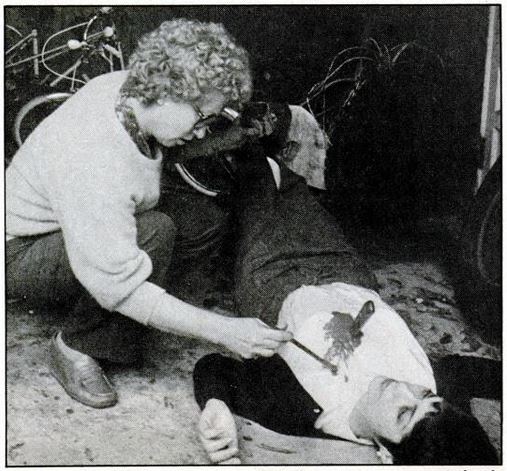
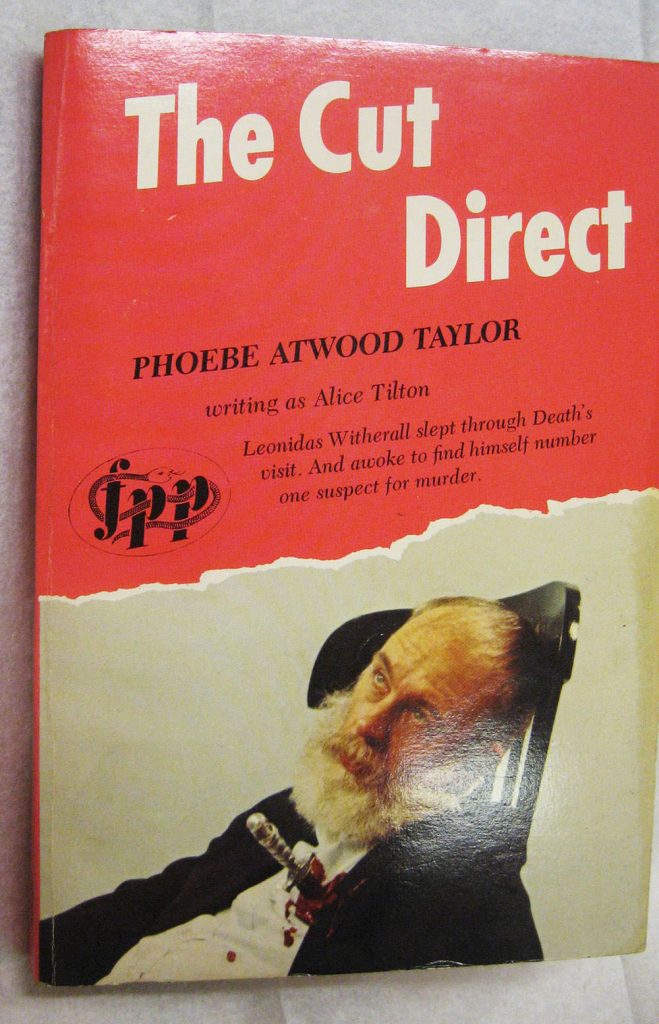
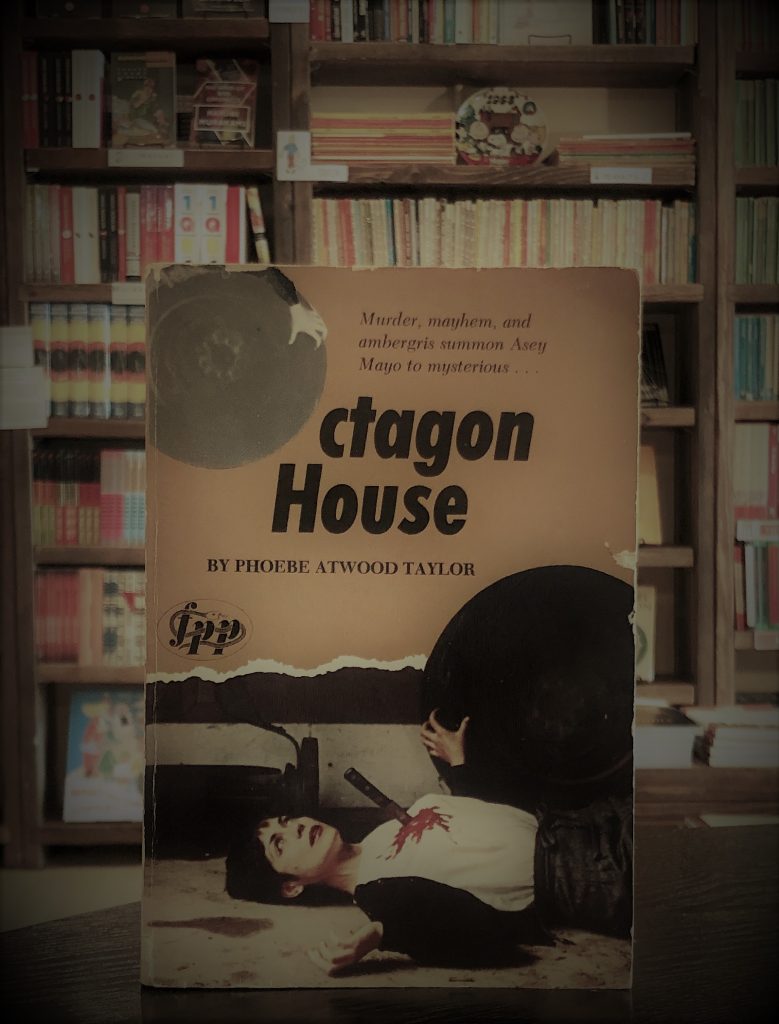

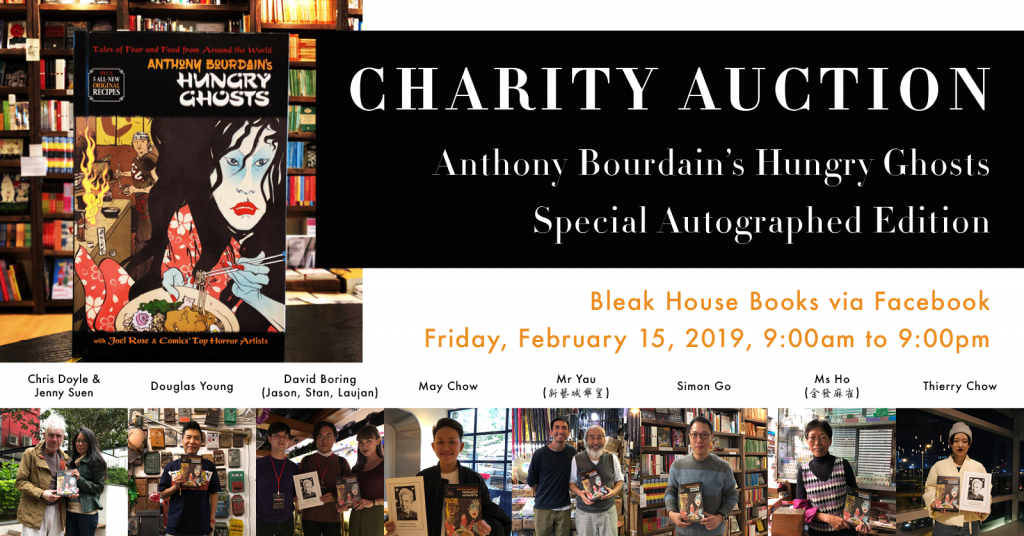
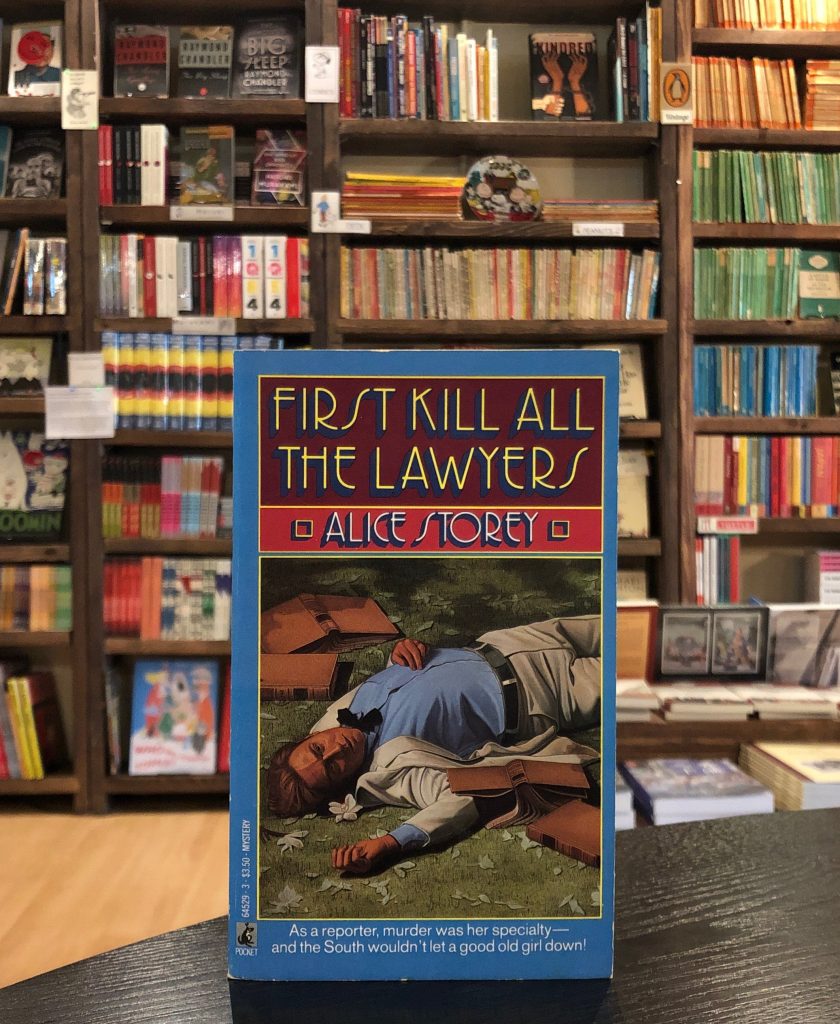
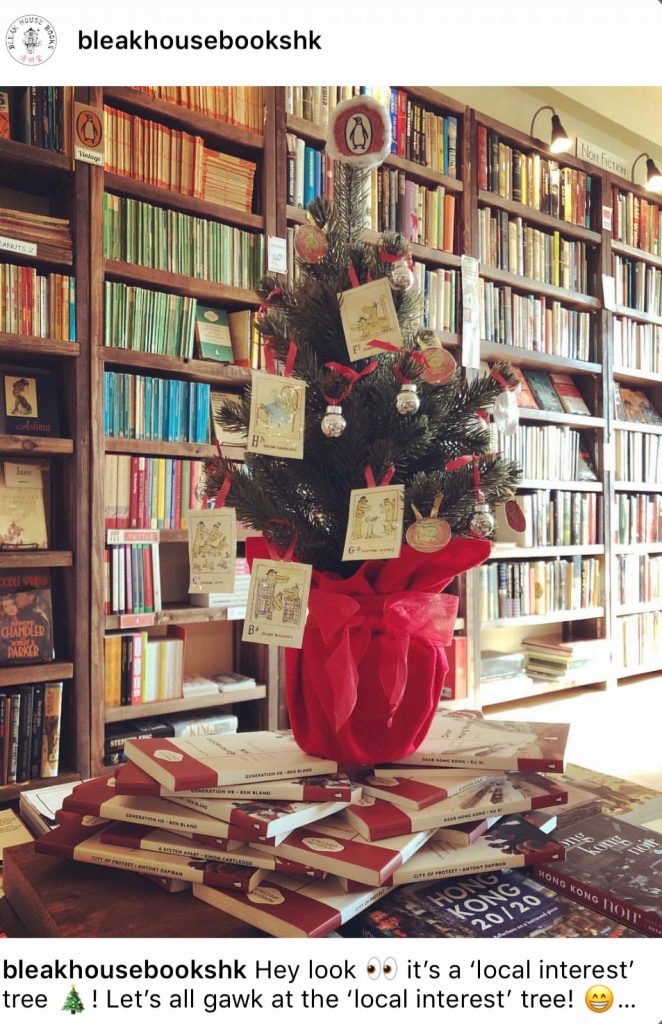
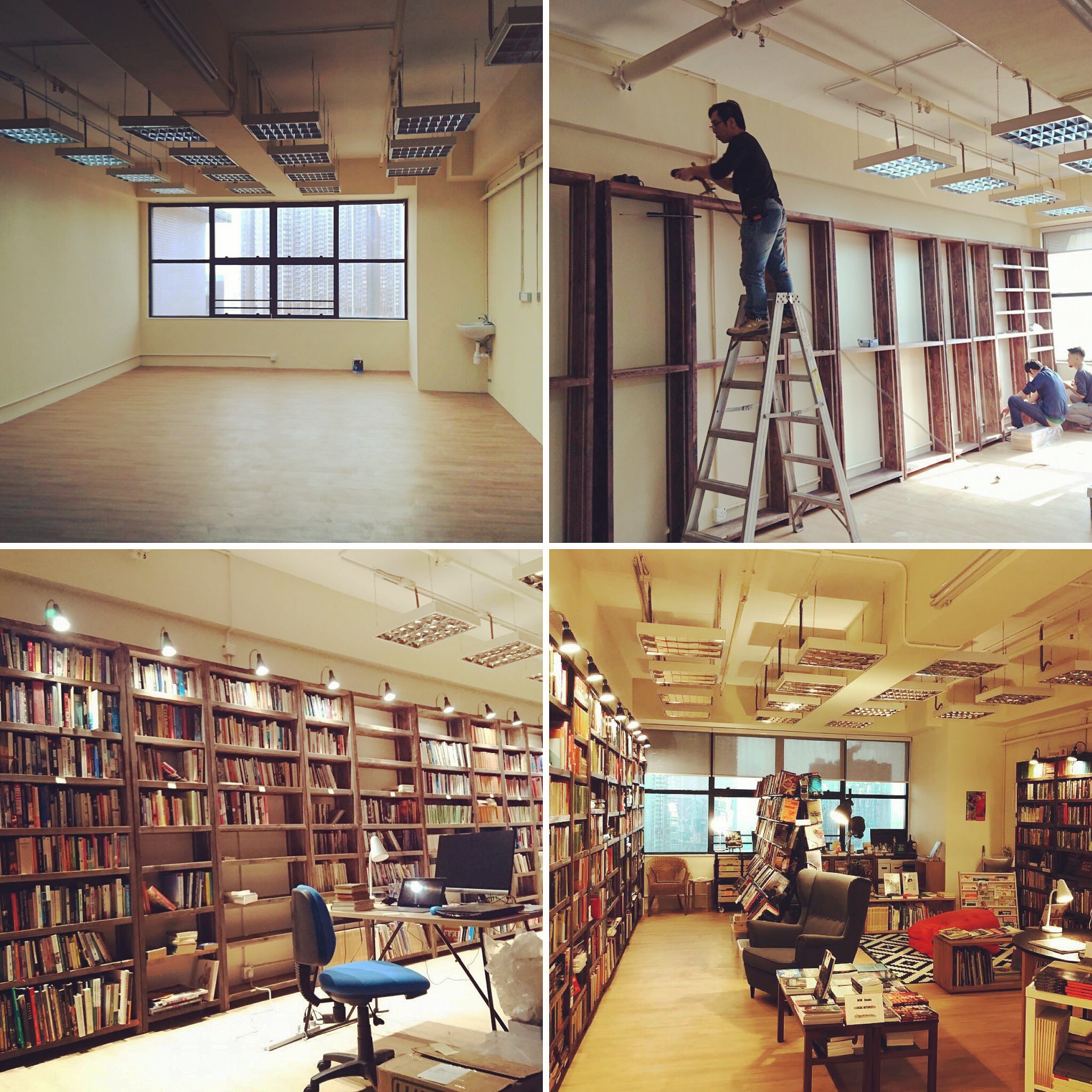
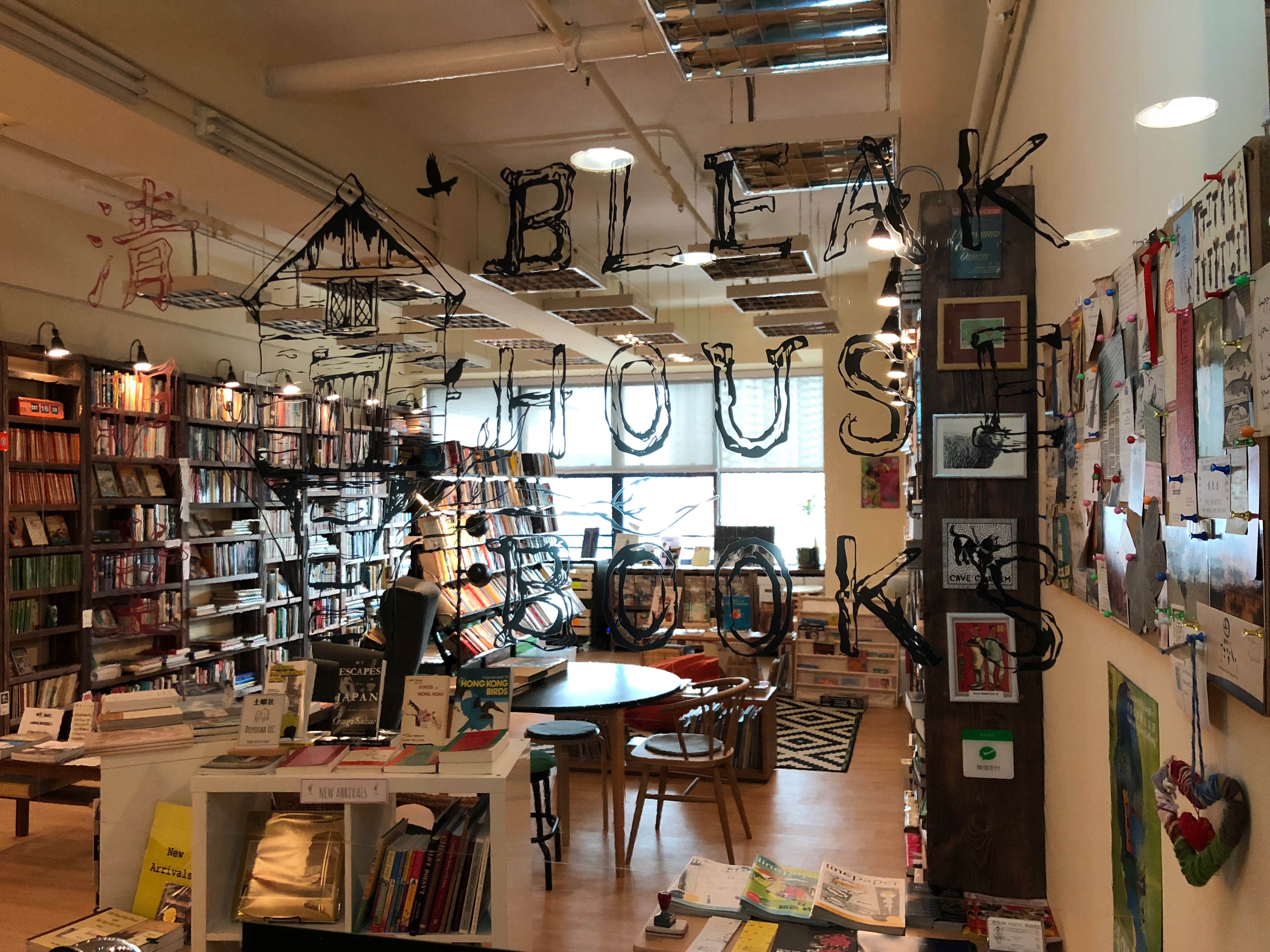
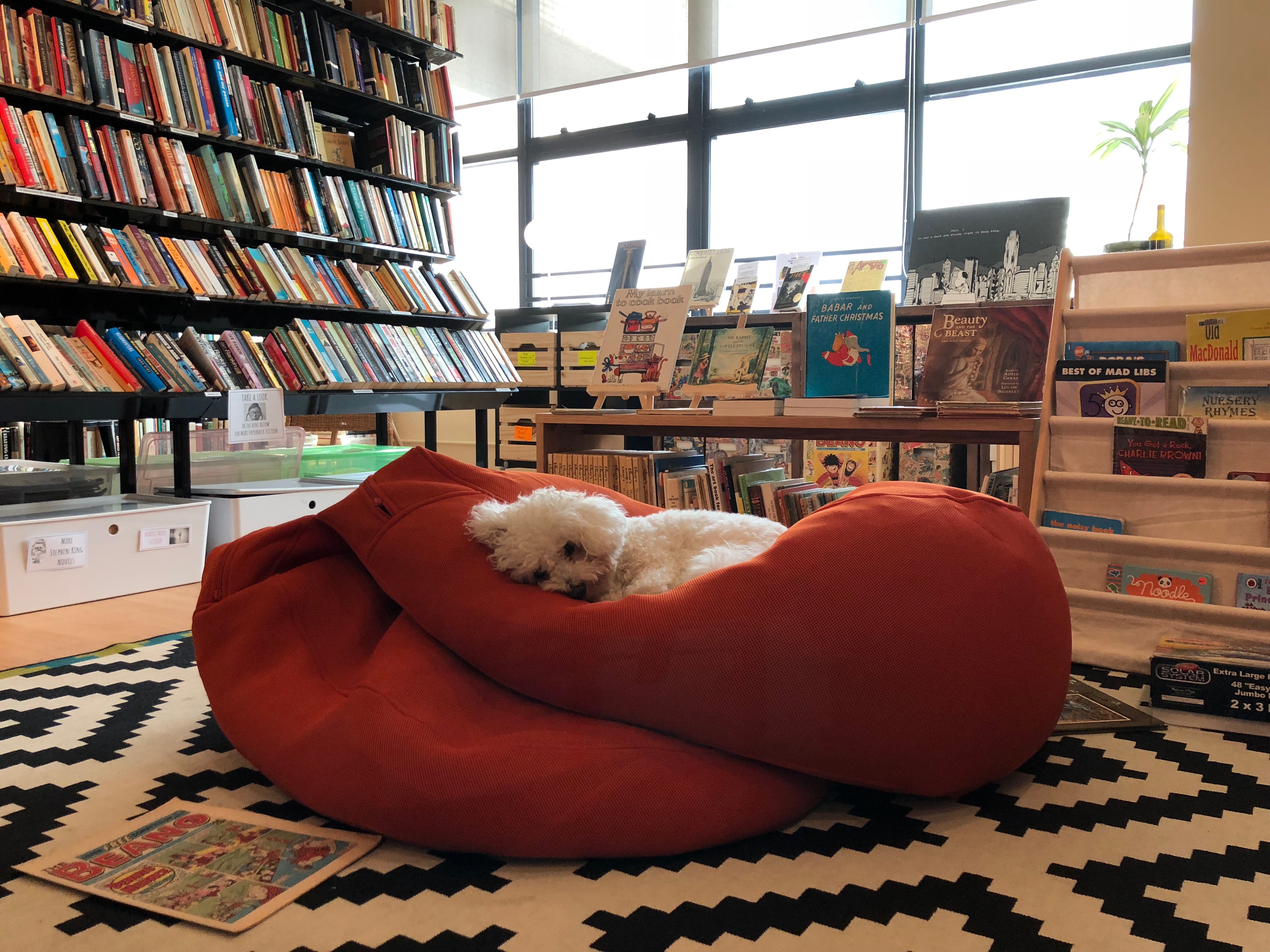 Since opening in January we have received our fair share of visitors from outside Hong Kong. For these folks a stop at a used bookshop is just what the doctor ordered when traveling abroad, and they usually make it a point to hit one or two used bookshops along with the more traditional travel destinations and sights. This means we have met folks from Germany, Canada, Philippines, Australia, Britain, the U.S., and other far flung places (at least in relation to Hong Kong’s geographic location), and some have even become good friends of the book shop and its staff.
Since opening in January we have received our fair share of visitors from outside Hong Kong. For these folks a stop at a used bookshop is just what the doctor ordered when traveling abroad, and they usually make it a point to hit one or two used bookshops along with the more traditional travel destinations and sights. This means we have met folks from Germany, Canada, Philippines, Australia, Britain, the U.S., and other far flung places (at least in relation to Hong Kong’s geographic location), and some have even become good friends of the book shop and its staff. It is probably cliche by now — just a day after his tragic suicide death — to say that Anthony Bourdain was more than just a T.V. personality, and somewhat presumptious to even make that observation for folks who never knew Tony beyond the cool, witty, no bullshit persona he exuded on the screen.
It is probably cliche by now — just a day after his tragic suicide death — to say that Anthony Bourdain was more than just a T.V. personality, and somewhat presumptious to even make that observation for folks who never knew Tony beyond the cool, witty, no bullshit persona he exuded on the screen.
